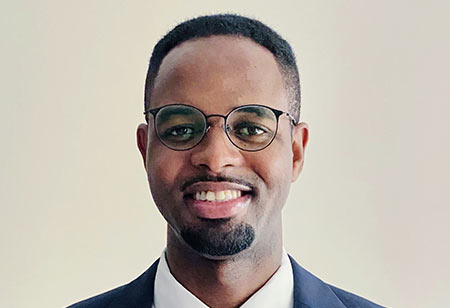Thank you for Subscribing to Healthcare Business Review Weekly Brief

Beyond the Counter: Elevating Pharmacy Technicians through Education and Leadership
Healthcare Business Review
Elone Winston is a dynamic leader in pharmacy technician education, advancing pharmacy practice across health systems. He currently serves as Program Director for Pharmacy Technician Education at the Mount Sinai Health System in New York City. With over a decade of healthcare experience, Elone has built innovative programs that have trained, certified and advanced pharmacy technicians throughout New York State. Elone holds a Doctor of Health Science (DHSc) and a Master of Public Health (MPH) degree, along with national certification as a pharmacy technician (CPhT). His career began with a vision of becoming a pharmacist, but he discovered his true passion in academia and empowering pharmacy technicians to expand their roles and impact patient care. Under his leadership, the Mount Sinai Pharmacy Technician Training Program achieved a 100% success rate and became a model for workforce development. Elone also teaches pharmacy technician courses for the CUNY and has written curricula for pharmacy technician programs.
“A well-trained technician workforce elevates pharmacy practice, increases efficiency, reduces turnover and allows pharmacists to practice at the top of their license and clinical expertise which directly improves patient outcomes”
Beyond program leadership, Elone actively contributes to national pharmacy initiatives. He has served on Pharmacy Technician Certification Board (PTCB) panels and advocates for evidence-based practice through research on technician credentialing and scope of practice. His work focuses on building stronger collaborations between pharmacists and pharmacy technicians to enhance healthcare delivery. Elone is passionate about mentorship, professional development, and health equity. His vision is to elevate the pharmacy technician profession by promoting education, leadership and meaningful career pathways. Through his ongoing work, Elone Winston is helping to shape the future of pharmacy practice and build a more skilled, recognized and respected pharmacy workforce.
Advancing Pharmacy Education, Efficiency, and Patient Safety
I lead with three guiding principles: excellence, equity, and impact. Excellence ensures our students are prepared to meet the highest academic and professional standards. Equity means creating opportunities for individuals from all backgrounds to enter and thrive in the pharmacy workforce. And impact reminds us that every technician we train directly contributes to patient safety, access to care, and system efficiency.
Balancing academic rigor with practical needs requires close collaboration with frontline pharmacy leaders. We align our curriculum with the operational demands of the health system while also instilling a strong foundation in professionalism, ethics, and critical thinking. Our goal is to graduate technicians who are not only competent, but adaptable and ready to step into advanced roles as healthcare evolves.
The most important factor is standardized training tied to competency assessment. As technicians take on more advanced responsibilities such as sterile compounding, medication history collection, or tech-check-tech the health system must ensure consistent, evidence-based training that validates both skill and judgment.
Equally important is creating clear career pathways. When technicians see opportunities for growth and advancement, retention improves, and health systems benefit from a more stable, highly skilled workforce. Finally, interdisciplinary collaboration is critical. Pharmacists, nurses, and other healthcare professionals must understand and trust the technician’s role for these expanded responsibilities to be fully integrated and safe for patients.
Preparing Tomorrow’s Pharmacy Technicians
Our program is designed not just to train entry-level technicians but to cultivate future leaders in the pharmacy workforce. We do this by embedding experiential learning in real health system settings, so students graduate with practical, hands-on skills that align with the realities of hospital and community pharmacy. Additionally, we aimed to provide student with a standardize learning model, so techs are equipped with the skills to be successful in a hospital setting.
We also emphasize professional development beyond the classroom, communication, teamwork, cultural competency and leadership. These skills prepare technicians to take on evolving roles, such as transitions-of-care support, population health initiatives, and diversion detection. I like to think of as we are building a scalable workforce model, one that not only meets today’s staffing needs but also incorporates the expanded scope of practice that will define the next decade of pharmacy care.
My advice is this: view pharmacy technician education as an investment, not a cost. A well-trained technician workforce elevates pharmacy practice, increases efficiency, reduces turnover, and allows pharmacists to practice at the top of their license and clinical expertise which directly improves patient outcomes.
When health systems underinvest in technician education or the pharmacy technician workforce, they face constant staffing shortages, burnout, and safety risks. But when they commit to structured training and career advancement, they unlock a powerful engine for workforce stability and patient-centered care. In today’s healthcare environment, resilience is built on people, and pharmacy technicians are a critical or as we like to say “they are the backbone of the pharmacy…” but are too often overlooked.









